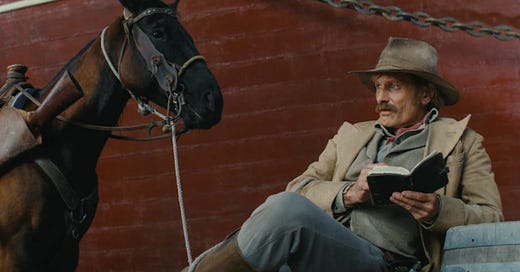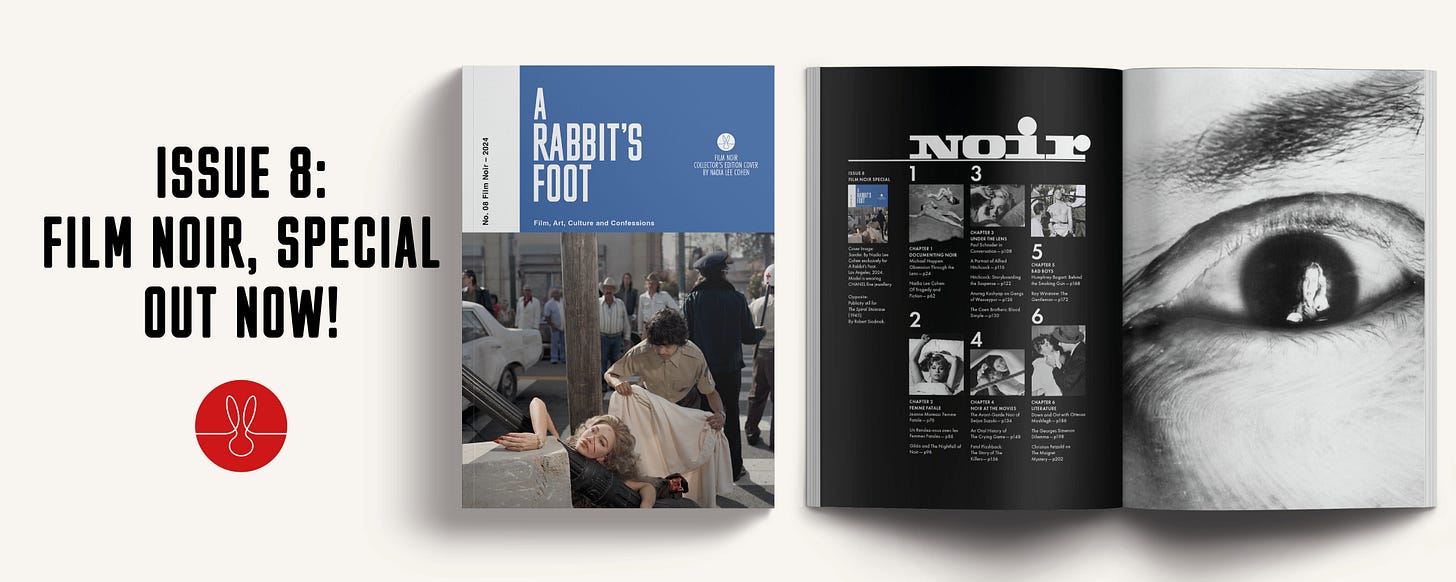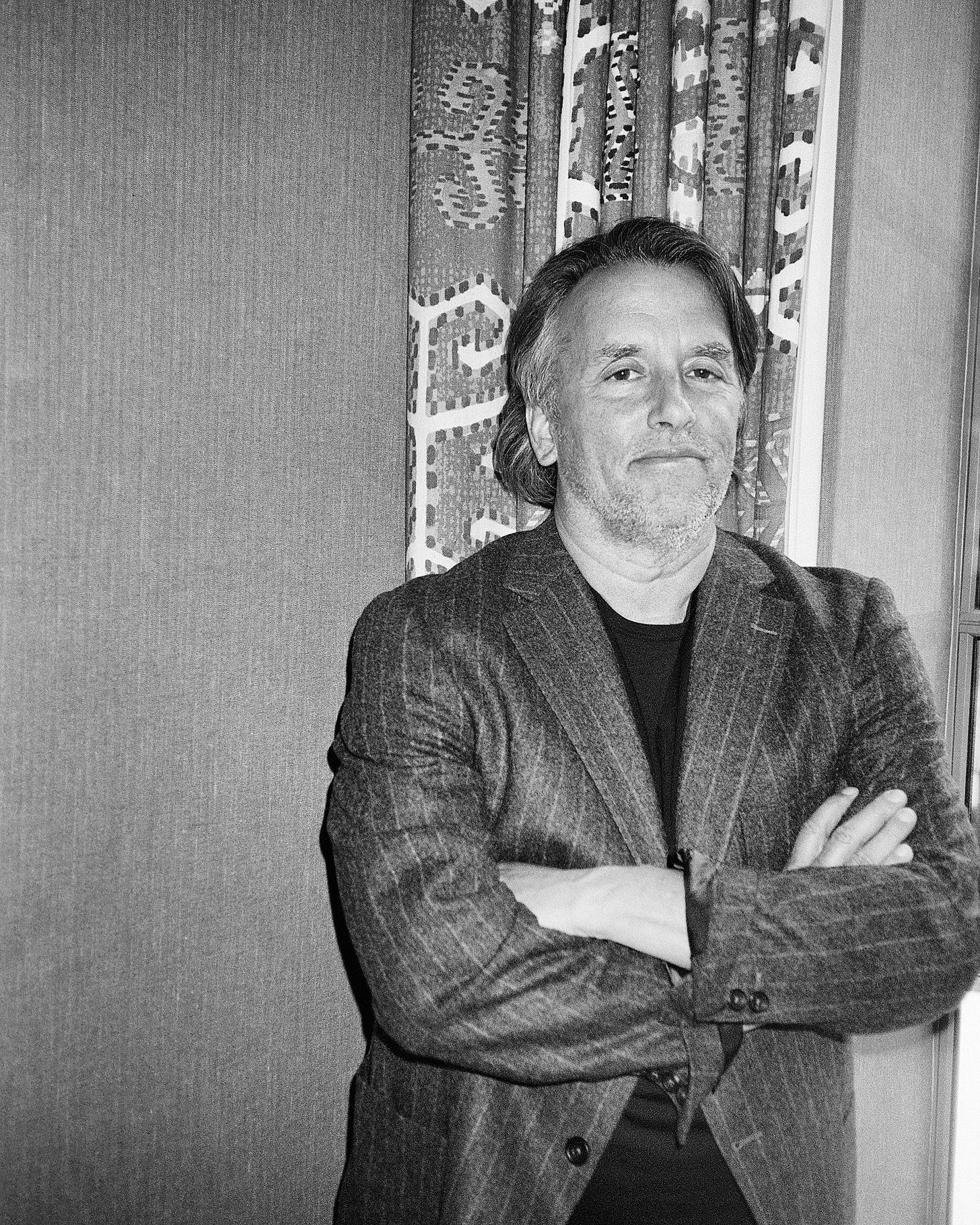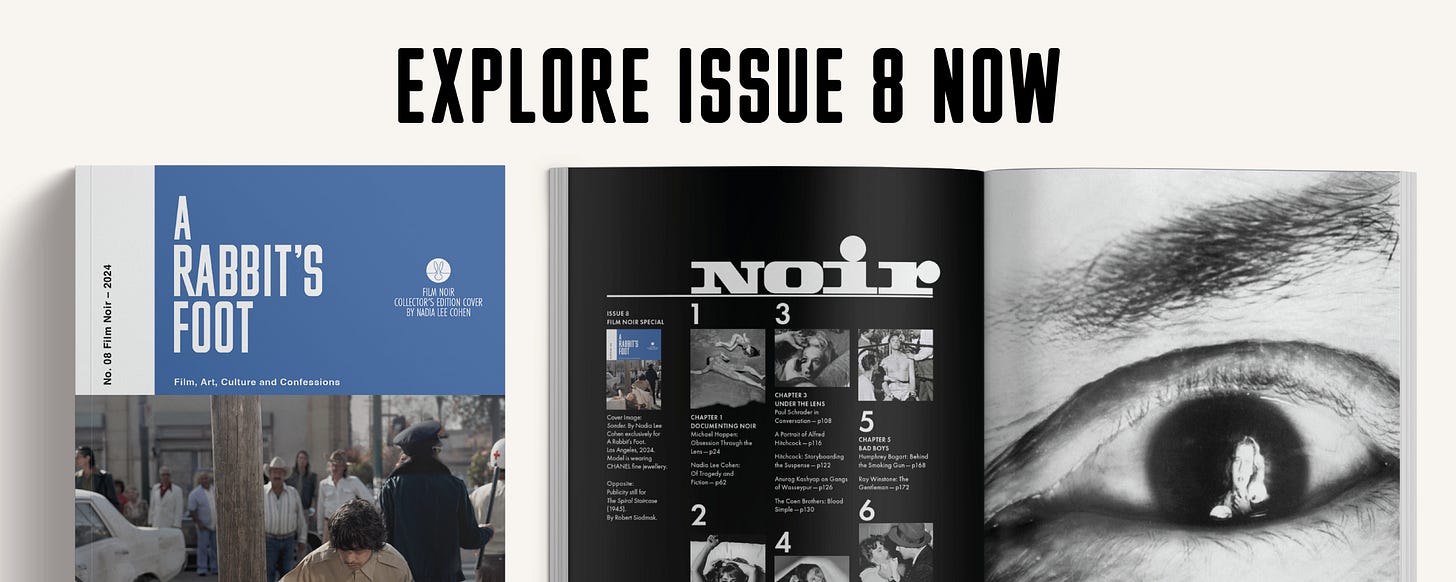Richard Linklater on Hit Man, Viggo Mortensen on The Dead Don't Hurt and the composer of Mad Max Furiosa
Film stories from A Rabbit's Foot this week
Why Richard Linklater is “always thinking in the eternal”
There’s not just one kind of Richard Linklater film, but you can be sure that every film of his is going to feel like it was made by Richard Linklater, be it a studio comedy (School of Rock), an arthouse experiment (The Before Trilogy, Slacker, Boyhood), or a rotoscoped dreamscape (Waking Life, A Scanner Darkly). Malleability is also at the core of Hit Man, an ingenious fusion of noir and screwball comedy that treats identity as something to be continuously moulded like playdough rather than something determined at birth. Based on a true story, Hit Man follows Gary Johnson (Glen Powell, also co-writer), a mild-mannered philosophy professor. On the side, Gary works for the New Orleans Police, and is promoted to undercover hitman after accidentally discovering he has a talent for character creation. In an interview with Luke Georgiades, Richard Linklater discusses time, identity, his perception of failure and how to make films that last.
Viggo Mortensen on why filmmaking is like publishing: “You have to remove parts unemotionally”
Viggo Mortensen's second feature, The Dead Don’t Hurt—starring Vicky Krieps and Mortensen in the lead roles—subverts the Western genre, telling the tale of a woman who waits whilst her husband goes away to war. “The story clearly becomes about her experience: that of a quietly stubborn, independent person. That’s what interested me.” In his own words, the actor-director talks about his latest feature, his collaboration with Argentine filmmaker Lisandro Alonso, playing characters with dubious morals ("If I accept a role, I commit to being fully inside it, without judgement") and his publishing company Perceval Press “We look for stories that are interesting to us, artists and work that I have learned something from and want to share with others, stories that might otherwise not be published,” he notes. “It’s not necessarily the most commercially-effective way to do things, but we end up producing books in a way that makes the process and result equally enriching.”
Tom Holkenborg on building character and culture into his Furiosa score
The score of Fury Road’s long-awaited prequel, Furiosa—which follows how the titular heroine (previously played by Charlize Theron, here by Anya Taylor Joy) becomes the badass desert warrior we first met in Fury Road —is surprisingly a far cry from the maximalist, tribal sound Miller introduced in his 2015 road-movie opus. Miller and composer Tom Holkeborg had other plans, choosing to peel the layers back with a score that uses the emotions of Furiosa herself as a sonic launchpad, however they might manifest. “Furiosa is a first-person perspective score,” Holkenborg tells me. “We’re seeing the world constantly through her eyes.” Tom Holkenborg, the composer of both Fury Road and Furiosa, speaks to A Rabbit’s Foot about the future of the Mad Max franchise, working in tandem with the special effects team to create his score, and how he weaved Australia itself into the music.








